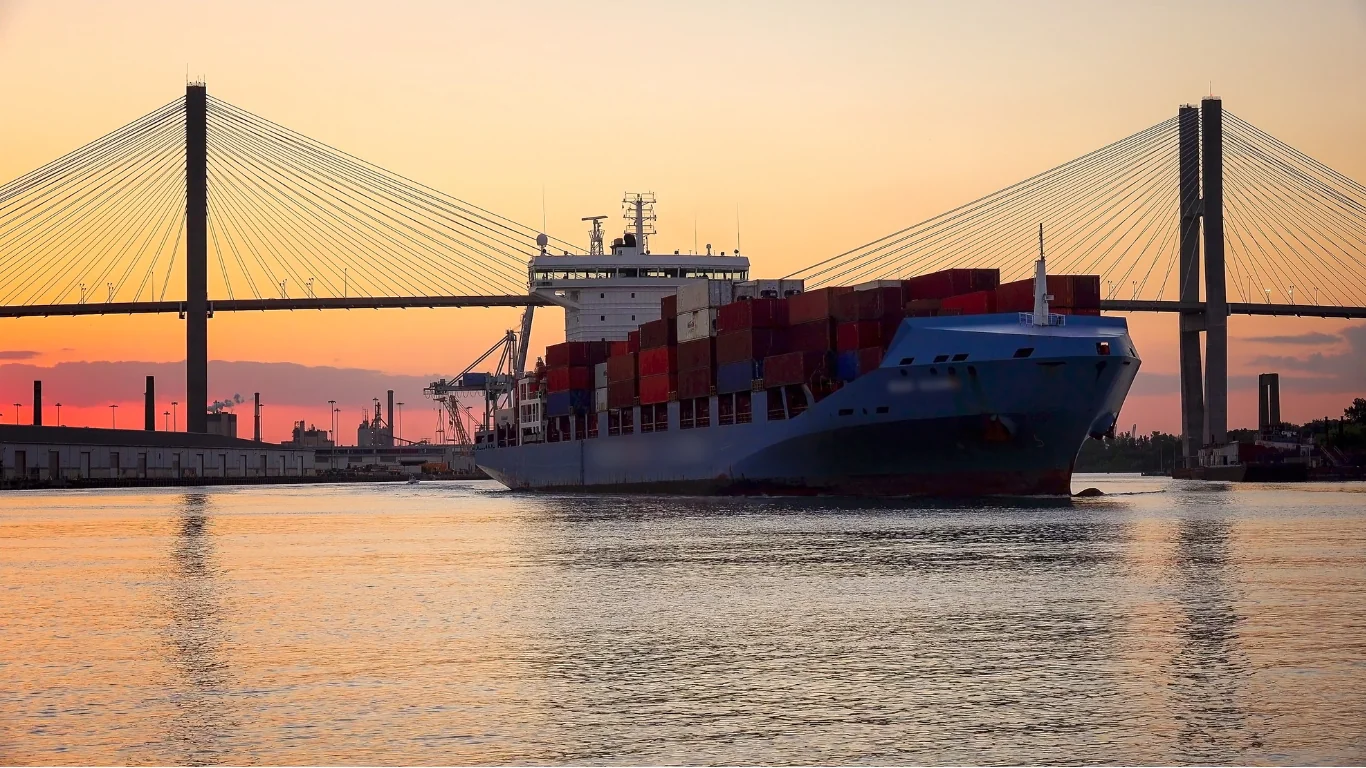
What is Freight?
Freight refers to the transportation of goods or cargo from one place to another using various modes of transportation like ships, planes, trains, or trucks. This can include various items such as raw materials, finished products, machinery, and consumer goods. The smooth flow of freight is essential for international trade and commerce, as it enables the easy exchange of goods between producers, suppliers, and consumers across different regions and countries.
Many factors can affect the transportation of freight, such as the type of goods being transported, their size and weight, the distance that needs to be covered, and the method of transportation chosen. Different freight transport methods include Full Truckload (FTL), Less than Truckload (LTL), air freight, ocean freight, and rail freight.
Effective freight management involves carefully planning, coordinating, and optimizing transportation routes and resources. This ensures that deliveries are made promptly while minimizing expenses and maximizing efficiency. Overall, freight transportation is a crucial part of global trade and commerce, and its smooth operation is essential for businesses and consumers worldwide.
When to Use Freight:
1- Large Volume Shipments: freight transportation can be more cost-effective.
2- Long-Distance Transport: Unlike shipping methods with size or weight limitations, freight services can accommodate larger, heavier shipments for long-haul journeys.
3- Specialized Cargo: freight transportation provides greater flexibility and customization options. Freight carriers have the equipment and expertise to handle cargo types, such as oversized, hazardous, or high-value items.
4- Customized Delivery Requirements: Businesses with specific delivery requirements, such as expedited shipping, scheduled deliveries, or special handling instructions, may find freight transportation more suitable.
Businesses aiming to improve their supply chain efficiency and simplify logistics operations can benefit from using freight services for dependable and seamless transportation of goods.

What is Shipping?
Shipping involves moving goods or cargo from one place to another, usually over long distances. This helps different people and businesses to trade and sell products all around the world. Shipping includes many steps, like packing, labeling, and delivering the goods. There are different ways to ship things, including by ground, air, ocean, and rail. The choice of shipping method depends on what is being shipped, how far it needs to go, how fast it needs to get there, and how much it costs.
Good shipping management also involves careful planning and coordination of all the steps to ensure everything arrives on time, costs as little as possible, and makes the customers happy. The shipping industry has become even more efficient and secure thanks to new technology, with better tracking systems and ways to move goods more quickly and safely.
When to Use Shipping:
1- Smaller Shipments: Shipping methods may be more cost-effective and practical when transporting smaller goods.
2- Faster Delivery: Shipping methods, such as express or expedited shipping, offer faster delivery times than freight transportation, which may involve longer transit times, especially for long-distance or international shipments.
3-Lighter Weight Shipments: Shipping methods are suitable for transporting lighter-weight shipments that do not meet the minimum weight requirements for freight transportation. Couriers and postal services specialize in handling smaller packages and parcels, making them ideal for businesses shipping lightweight goods.
4- Residential Deliveries: Shipping services are often used for delivering goods directly to residential addresses, especially for e-commerce businesses selling products to individual consumers.
5- Flexibility and Convenience: Shipping methods offer flexibility and convenience for businesses, allowing them to easily schedule pickups, track shipments, and manage deliveries online.
Differences Between Freight Vs. Shipping:
Freight:
– Refers to the goods or cargo being transported from one location to another.
– Focuses on the items being moved and not the transportation used.
– Covers a wide range of goods, including but not limited to raw materials, finished products, machinery, and consumer goods.
– Involves careful planning, coordination, and optimization of transportation routes and resources to ensure guaranteed delivery and cost efficiency.
Shipping:
– Refers to the entire process of transporting goods or cargo from one location to another.
– Involves packaging, labeling, documentation, loading, unloading, and delivery.
– Utilizes different modes of transportation such as ships, aircraft, trains, or trucks.
– Requires careful planning, coordination, and optimization of logistics processes to ensure timely delivery, minimize costs, and meet customer expectations.
FreightCenter Is Here To Help
FreightCenter is available to assist with all your freight and shipping requirements.
We encourage you to contact us for any inquiries or assistance.


